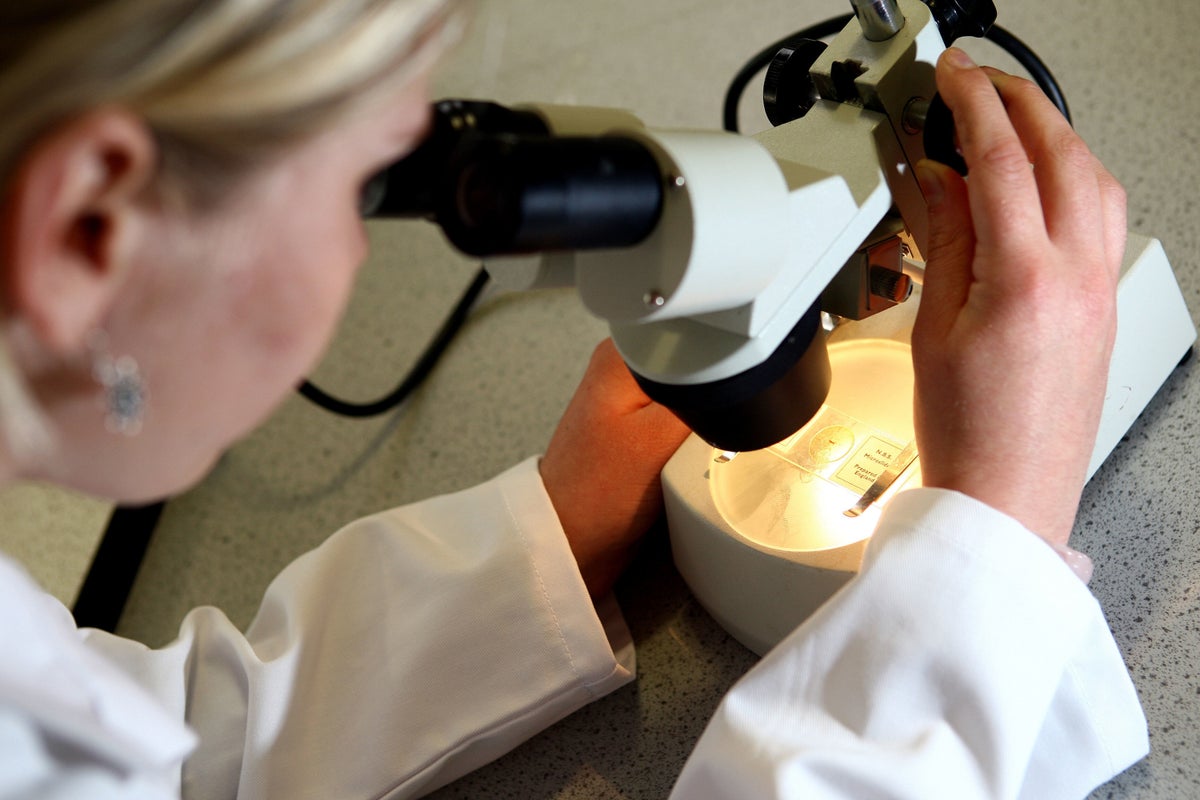
It could be “feasible” for GPs to screen patients’ genomes – DNA blueprint – in order to assess the risk of conditions like cancer and heart disease, a new study suggests.
Researchers say tests can spot genetic changes that may have important implications for health, allowing preventative measures or counselling to be made available.
They say the findings could be the “start of a revolution” for healthcare whereby the screening is routinely provided to patients by their doctors.
The 90S study is the first to demonstrate that whole-genome sequencing (WGS) is possible in primary care settings like GP surgeries, and suggests it could have a role in detecting or preventing diseases like cancer or heart disease.
We feel that this work could place us at the start of a revolution for healthcare, by helping to pave the way for a future where genomic screening is provided routinely to patients in primary care
A quarter of people involved in the study had potentially actionable genetic alterations – changes for which there is a treatment or therapy – that increased their risk of diseases like cancer, heart diseases and blood clotting diseases.
The researchers also found that six in 10 people carried an inherited mutation in a recessive gene.
This means they would not have the condition themselves, but might risk passing it on to any children if their partner also had the same recessive gene.
Study leader Ros Eeles, professor of oncogenetics at The Institute of Cancer Research, London (ICR), is a consultant in clinical oncology and oncogenetics at The Royal Marsden NHS Foundation Trust.
She said: “Our study is the first to assess whether whole-genome sequencing can be delivered by GPs and demonstrates that it is feasible, provides important genetic information, and is likely to benefit patients by making preventative measures or counselling available to them.
“We feel that this work could place us at the start of a revolution for healthcare, by helping to pave the way for a future where genomic screening is provided routinely to patients in primary care.
“Our findings suggest that integrating whole-genome sequencing into primary care could change the way most patients and their families are managed by their GPs – either by detecting genetic variants that will affect a patient’s own health, or by highlighting their risk of passing on a genetic alteration which is important for future family planning.”
The findings are presented at the American Society of Clinical Oncology annual meeting in Chicago.
The study involved 102 healthy people from The London Genetics Centre at 90 Sloane Street between 2020 and 2022, who had their entire genetic code read from samples taken at the practice.
Researchers looked for 566 separate genetic changes linked to disease, including changes to 84 genes related to cancer and 77 related to heart conditions, and other genetic changes linked to how patients respond to or break down certain medicines.
Some 26 out of the 102 participants had potentially actionable genetic variants, 61 had a recessive gene that could be passed down to children, and 38 had genetic changes linked to specific responses to medicines.
According to the scientists, picking up on these changes could change the way patients and their families are treated by doctors – either by offering monitoring, screening, or other measures to prevent disease.
Dr Michael Sandberg, GP at 90 Sloane Street and co-principal investigator for the 90S Study, said: “This study is pushing the boundaries of genomic screening by showing that it is feasible as part of GP care and has the potential to significantly improve people’s health.
“We hope we could also stop many genetic conditions from being passed on to future children and grandchildren, if they have a ‘monogene’ basis, such as BRCA gene alterations.
“Whole genome screening could therefore have a huge impact and enormous benefits for people – and it is important to note we are only testing for genetic changes where we can help, so called actionable.”
The study is looking for gene alterations which if detected would effect choices for someone such as lifestyle improvements, specific screening and sometimes targeted treatments.
It will not report on the risk of diseases for which no action can be taken.
The team aims to make genetic screening practical and psychologically acceptable to people by providing specially trained staff to help with the medical and psychosocial consequences of any genetic findings.
Researchers acknowledge the resources needed might not be readily available on the NHS, but they are looking for ways of simplifying processes to make them suitable for large-volume NHS screening.
A team at the ICR and The Royal Marsden NHS Foundation Trust, worked in partnership with cardiology Consultants at The Royal Brompton and Harefield Hospitals and with The London Genetics Centre at 90 Sloane Street, a private GP practice, to carry out the study.
It received funding from the NIHR Biomedical Research Centre at The Royal Marsden and the ICR, the Oppenheimer Foundation and the David de Boinville Fund.







